10 Food Groups That Could Help Reduce Cancer Risk
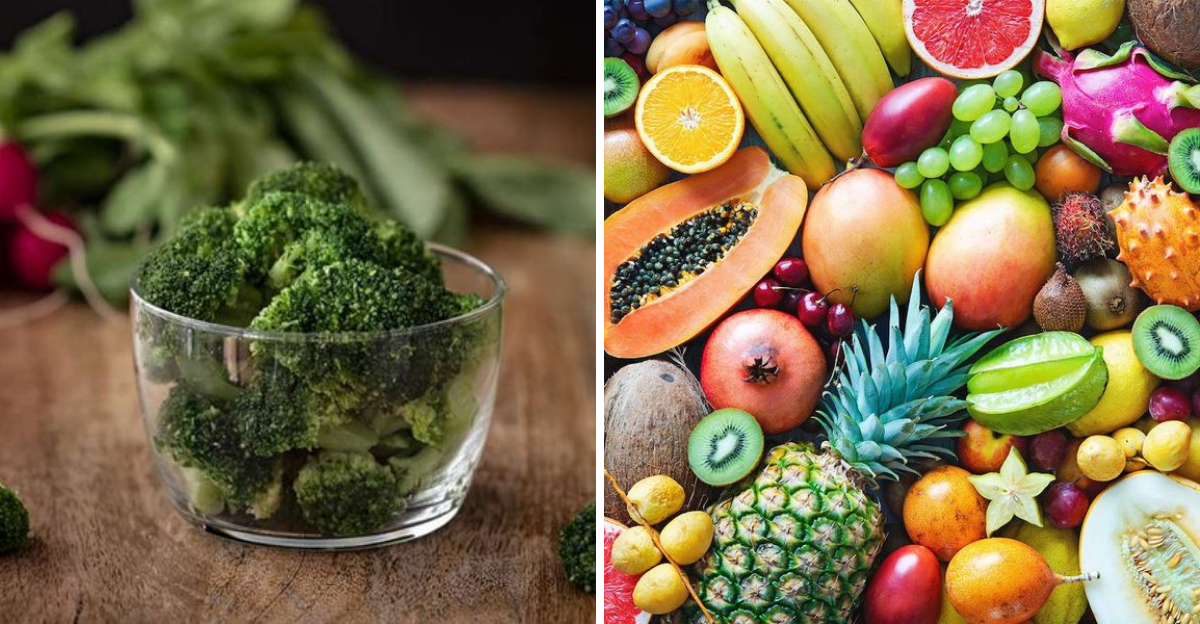
Explore these 10 essential food groups that may help reduce cancer risk. Each group offers unique nutrients and compounds that have been linked to cancer prevention. Incorporating these foods into a balanced diet could provide added protection against various forms of cancer.
1. Cruciferous Vegetables

Cruciferous vegetables hold a secret weapon against cancer: glucosinolates. These powerful compounds may neutralize carcinogens and support liver detox. Imagine a dinner plate brimming with vibrant broccoli and cauliflower, each bite offering more than just flavor.
Cruciferous veggies are particularly linked to a lower risk of colorectal and breast cancers. Their ability to bolster the body’s defenses makes them a culinary must-have.
Broccoli, kale, and cabbage not only add color to meals but also bring a promise of health. These vegetables are not just sustenance; they’re nature’s arsenal against cancer.
2. Berries
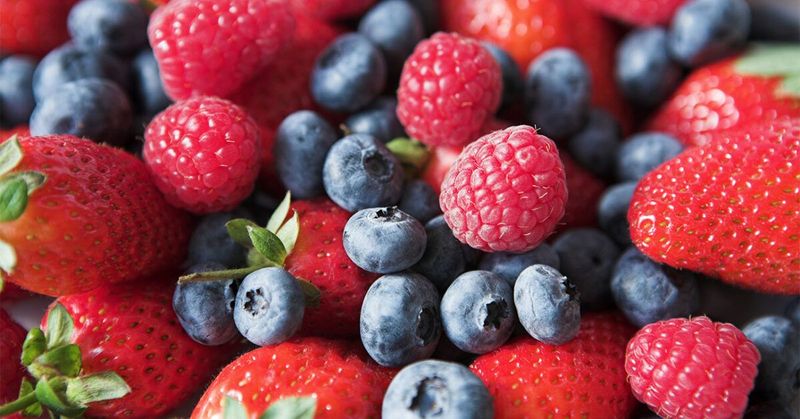
With a burst of color and taste, berries take center stage in the fight against cancer. Rich in antioxidants like ellagic acid and anthocyanins, they combat oxidative stress and inflammation.
Picture a bowl of blueberries and raspberries; each one a tiny defender against disease. Berries’ vibrant hues signal their health benefits, turning a simple snack into a powerful act of self-care.
Regular consumption of berries is associated with reduced cancer risk, offering a sweet, natural shield. These fruits are much more than dessert toppings; they’re defenders of your health.
3. Leafy Greens
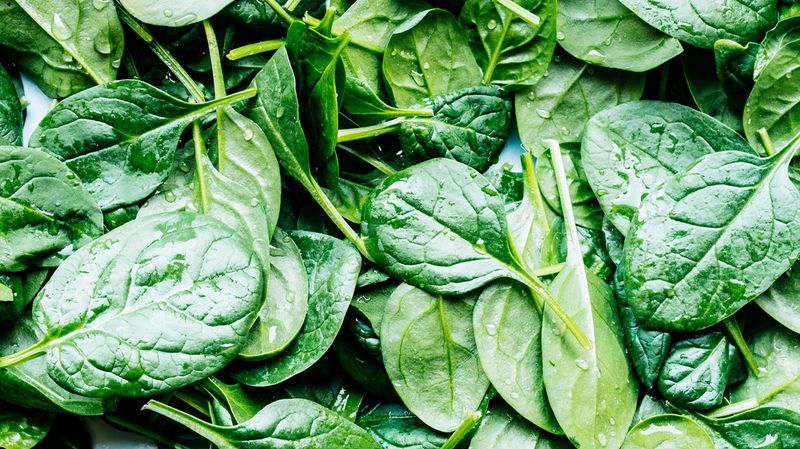
Leafy greens are the unsung heroes of the vegetable world. Packed with fiber, folate, and chlorophyll, they support healthy cell repair and reduce free radical damage.
Imagine a fresh salad of spinach and arugula; each leaf a testament to nature’s healing power. Leafy greens are more than just a side dish; they’re a cornerstone of a health-conscious diet.
Their rich nutrients and vibrant colors make them essential for those seeking to reduce cancer risk. These greens are a celebration of nutrition and life, one leafy bite at a time.
4. Whole Grains
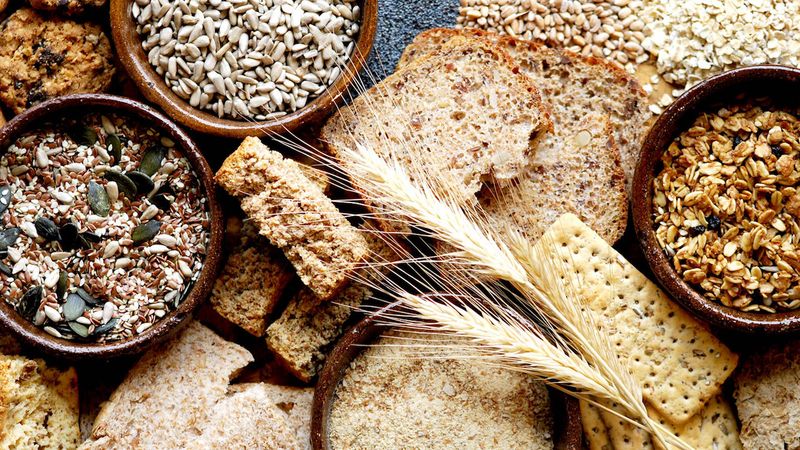
Whole grains are more than just the foundation of a hearty breakfast; they’re a bastion against cancer. High in fiber, they support digestive health and are linked to reduced colorectal cancer risk.
Consider the comforting warmth of a bowl of oatmeal or the nutty flavor of quinoa. These grains regulate blood sugar and insulin, potentially lowering risks for hormone-related cancers.
Whole grains are the unsung champions of a balanced diet. Their earthy flavors and textures are a reminder that health and taste can go hand in hand.
5. Legumes

Legumes are a powerhouse of fiber and plant protein, offering more than just sustenance. Their phytochemicals and antioxidants may lower inflammation and improve gut health, both linked to cancer prevention.
Envision a colorful bean salad, each bean a tiny soldier in the battle against disease. Legumes’ versatility makes them a staple in many cuisines, adding depth and nutrition to dishes.
With each bite, legumes promise more than just flavor. They’re a testament to the power of plants in combating cancer, turning a simple meal into a healthful statement.
6. Allium Vegetables

Allium vegetables are pungent powerhouses, rich in sulfur compounds like allicin that may slow tumor growth and boost immunity. Consider the aromatic delight of garlic sizzling in a pan, a simple act with profound health implications.
These vegetables are a staple in kitchens worldwide, renowned for their ability to enhance flavor and health. Onions, leeks, and shallots offer layers of taste and protective benefits.
Allium vegetables transform ordinary meals into therapeutic endeavors. Their rich flavors and health benefits make them indispensable in the quest for cancer prevention.
7. Nuts and Seeds
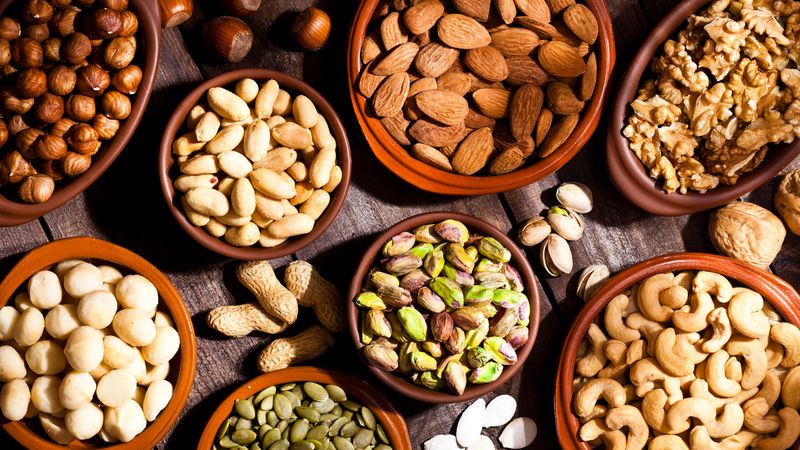
Nuts and seeds are tiny titans of health, packed with healthy fats, fiber, and plant lignans. Imagine crunching on almonds and walnuts, each bite a boost to your body’s defenses.
Flaxseeds, in particular, are associated with a reduced risk of breast and prostate cancers. Nuts and seeds add texture and nutrition to meals, transforming ordinary dishes into healthful delights.
Their tiny size belies their immense health benefits, making them a vital part of a cancer-preventive diet. These small powerhouses are a testament to the saying, ‘Good things come in small packages.’
8. Fruits Rich in Vitamin C
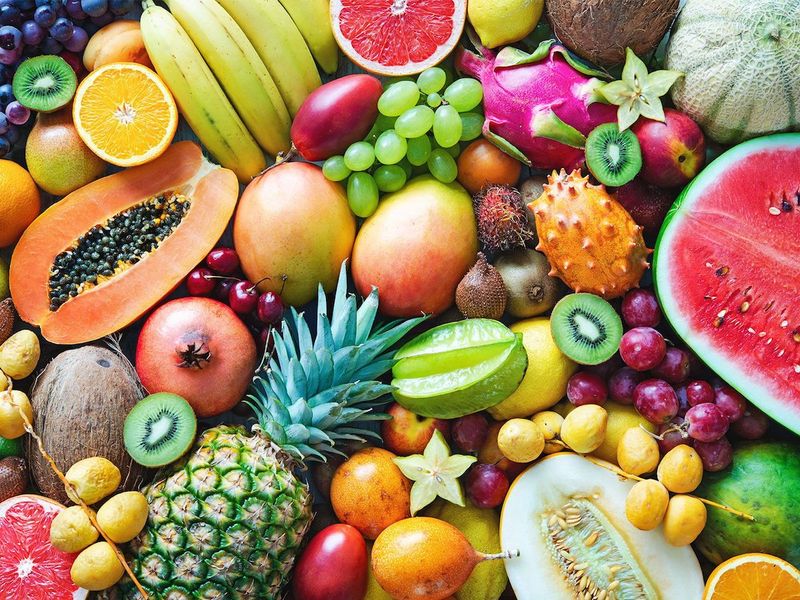
Fruits rich in Vitamin C are as vibrant in health benefits as they are in color. Picture a juicy orange or a ripe papaya, both brimming with the promise of cell repair and immunity boost.
Vitamin C helps protect DNA from mutations that can lead to cancer. These fruits are more than just a morning snack; they’re a proactive step towards health.
Their tangy flavors and refreshing qualities make them a delicious way to fortify the body’s defenses. Enjoying these fruits is like receiving nature’s vitamin-packed hug, full of zest and protection.
9. Fatty Fish
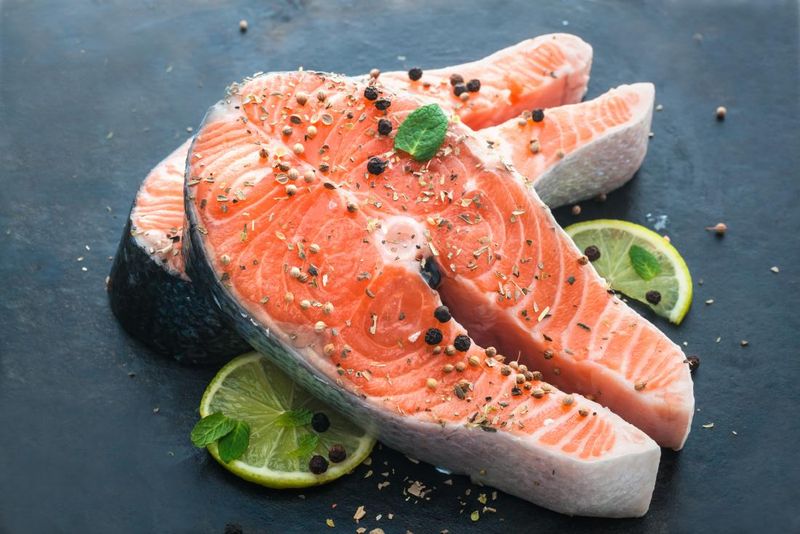
Fatty fish are the ocean’s gift to health, offering a rich source of omega-3 fatty acids. Consider the succulent taste of salmon, not just a meal but a defense against inflammation and cancer.
These fish are linked to a reduced risk of several cancers, particularly colon and breast. Their unique flavors and textures provide more than just culinary pleasure.
Fatty fish are a reminder that nature’s bounty includes potent allies against disease. By incorporating them into the diet, you’re embracing both flavor and health, a dual benefit from the sea.
10. Fermented Foods
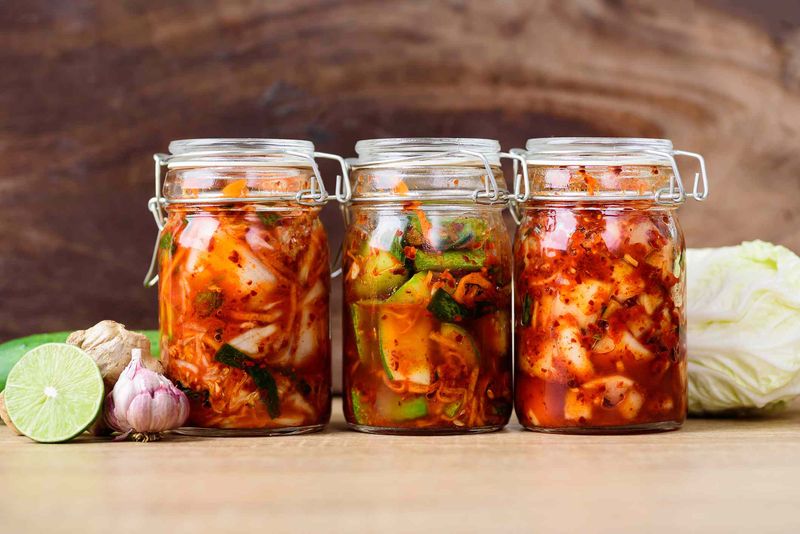
Fermented foods are a celebration of tradition and health, promoting beneficial bacteria that enhance immune response. Consider the tangy taste of kimchi or the creamy delight of yogurt, each bite a step towards better gut health.
These foods reduce inflammation, an important factor in cancer prevention. Fermented foods are not just culinary treats; they’re age-old remedies with modern health benefits.
Incorporating them into your diet is like inviting centuries of wisdom to your table, a delightful way to boost health and enjoy diverse flavors. They are nature’s way of combining taste and wellness.
